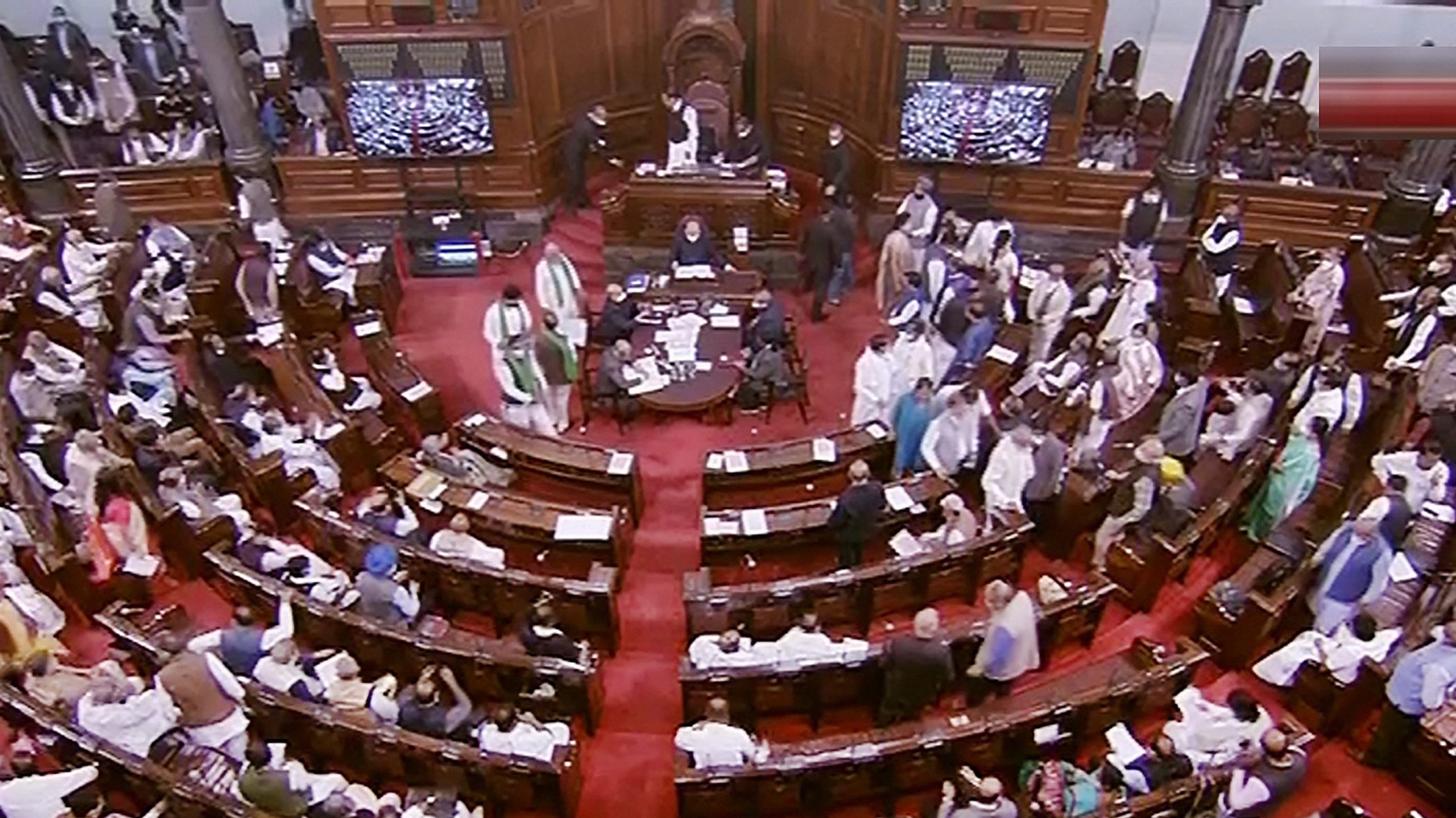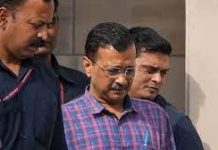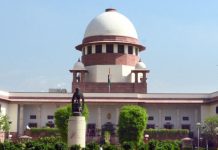
Productivity of both the Houses was under par during the winter session and transaction of business was carried out in a hurry. While it suited the ruling dispensation, it deprived the Opposition of opportunity to corner the government on sticky issues.
Parliament has come to be reckoned with as the most important component of parliamentary democracy that serves as a direct link between the ruler and the ruled. Abraham Lincoln’s famous definition of a democracy as the government of the people, by the people and for the people is truly represented by directly elected representatives. Undoubtedly, democracy is becoming a popular system of governance worldwide where many countries are trying to nurture and preserve the tenets of democracy for the wellbeing of their masses; nevertheless, a semblance of decline in the parliamentary system and democratic institutions is also becoming discernible. Along with other countries that are practicing parliamentary democracy, India is also witnessing a gradual decline in its parliamentary system as well as democratic institutions for some decades now.
And almost all political parties, irrespective of their ideologies and hues, that happened to be at the helm of affairs on one time or the other, have contributed to this democratic decline and non-functioning of Parliament. Washing out of the parliamentary sessions from time to time without transacting any meaningful business has become the norm of the day with major political parties hereby squandering away taxpayers’ money down the drain. Monsoon Session and the Winter Session of the parliament held in 2021 have been washed out and present the stark examples of declining system of parliamentary democratic system in India and that is a worrisome question for all democracy-loving people.
Winter Session of Parliament was to commence from November 29 to December 23 this year, and this session was said to have assumed significance in the backdrop of Prime Minister’s announcement on November 19 with regard to his government’s decision to repeal the three controversial farm laws This winter session of parliament was expected to be stormy session because of the issues of national importance, such as the Pegasus spyware controversy, data protection bill, electoral reform amendment bill, issue of abolishing the NEET system, extending the jurisdiction of paramilitary forces in Punjab and West Bengal etc., were such issues that entailed every likelihood of making Winter Session as a stormy session.
On both issues of repealing three controversial farm laws and controversy over Pegasus spyware, Modi government was seemingly on back foot because it was reluctant to invite discussion on these issues. Interestingly, the Pegasus issue had already rocked Parliament in the previous Monsoon Session this year, with the nation watching unprecedented protests in the Lower House as well as Upper House of Parliament. Besides, appointment of an independent technical committee by the Supreme Court to examine issues involved in Pegasus case had strengthened Opposition’s case and put the Modi government on defensive.
Apart from these two controversial issues, the data protection bill, specifically Section 35 of the bill that empowers the government to exempt federal agencies from the application of the data protection law in the interest of “sovereignty and integrity of India, security of the state, friendly relations with foreign countries and public order”, and which had dissenting opinion of the Opposition members of the Joint Parliamentary Committee (JPC) on this bill, was also expected to be storm-raising issue.
Furthermore, Modi government’s decision to extend the jurisdiction of the Border Security Force (BSF) in the states of Punjab and West Bengal had already been opposed by the governments of those respective states alleging that the Central Government was violating the federal structure of the country, and any possibility of debate on this issue in the Winter Session was prone to be stormy. Precedence mirrors the present and future as well and going by this measure, washing out of the previous Monsoon Session this year two days ahead of schedule with both Houses being disrupted time and again, even the Winter Session was likely to go the same way. As per PRS Legislative Research data, the Monsoon Session was the third least productive Lok Sabha session of the last two decades, with a productivity of just 21 percent. Rajya Sabha logged a productivity of 28 percent, its eighth least productive Session since 1999.
How did the winter session go
As expected, the winter session of Parliament proved stormy and was held from November 29, 2021 to December 22 , 2021, and it was adjourned one day ahead of schedule, having sat for 18 days. On the very first day, 12 MPs were suspended from Rajya Sabha for having not observed parliamentary conduct on the last day of Monsoon Session 2021. On the penultimate day of the session, another Rajya Sabha MP was suspended on the grounds of disorderly conduct. The Winter Session saw introduction of 12 Bills (excluding Appropriation Bills). Of these, ten Bills were passed, of which six had been introduced in this session, and these, inter alia, included: the Farm Laws Repeal Bill, 2021, and the Election Laws (Amendment) Bill, 2021. Bills pending from previous sessions that were passed in this session included: the Dam Safety Bill, 2019, and the Surrogacy (Regulation) Bill, 2019. Four Bills were referred to Committees including the Prohibition of Child Marriage (Amendment) Bill, 2021 and the Mediation Bill, 2021. In the current Lok Sabha, only 13 % of the Bills have·been referred to Committees. This is much lower than the last three Lok Sabhas.
The Winter Session of parliament saw legislative agenda being carried out amid a storm of protests and chaos in both Houses, and at the very start of the session, Parliament witnessed constant disruption and adjournment as Rajya Sabha chairman suspended 12 Opposition MPs for their ‘unruly’ behaviour during the previous Monsoon Session and other Opposition members had been demanding the revocation of the suspension in both Houses. Overall productivity of both the Houses of Parliament was said to be below expectations and transaction of business was carried out hurriedly and it suited the ruling dispensation and spoiled the opportunity for the Opposition to corner the ruling party on sticky issues.
Winter Session witnessed Lok Sabha passing 35% of Bills in less than 30 minutes. Lok Sabha sat for 77% of its schedule time, while Rajya Sabha sat for 43% of its schedule time. According to Union parliamentary affairs minister, during the Winter Session, Lok Sabha registered 82% productivity while Rajya Sabha witnessed 47% productivity. Leader of Opposition in Rajya Sabha said that the ruling NDA government deliberately suspended the 12 Rajya Sabha MPs so that the bills could be passed easily despite the request by the Opposition for revoking the suspension so that the House could function smoothly.
A Way Forward
Frequent incidents of washing out of periodic sessions of Parliament do not bode well for sustenance of democracy in India in the long run. A nation that prides itself being an example worth emulating for successful functioning of parliamentary democracy for the emerging democracies, the sordid state of affairs prevalent in the country entail the likelihood of spoiling India’s image of a successful democracy. Both the present ruling dispensation and the Opposition need to do rethinking their way of approaching the uninterrupted functioning of the Parliament as well as preservation and further strengthening of parliamentary and democratic institutions. India’s credentials as a free and democratic country are coming under eclipse in the international comity of nations as reflected in various reports published by international institutions from time to time. Larger national interest of preserving democracy and hard-won freedom should prevail over petty political interests.











